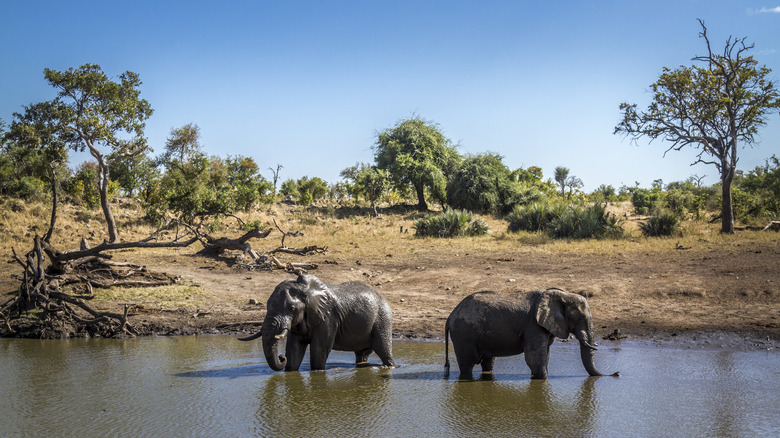Why Are Ecosystems So Important?
Ecosystems are communities of organisms and non-living matter that interact together. Each part of the ecosystem is important because ecosystems are interdependent. Damaged or imbalanced ecosystems can cause many problems.
Components
Components
Ecosystems are made up of soil, sunlight and heat, water, and living organisms which include:
- plants
- animals
- decomposers
Interactions
Interactions
Living organisms within an ecosystem interact in many ways including predation, cooperation, competition and symbiosis. Each species has a niche, or special role, such as eating small insects, decomposing matter or converting sunlight to energy through photosynthesis.
Size
Size
Ecosystems vary widely in size–they can be a puddle, a lake or a desert. Terrariums are artificial ecosystems.
Biomes
Biomes
Biomes are composed of several ecosystems that are similar to each other. Tropical rainforests, deserts, tundra and grasslands are all biomes.
Ecosystem Disturbances
Ecosystem Disturbances
A small change in an ecosystem, such as the elimination or introduction of one species, can cause changes throughout the entire ecosystem. Environmental changes or human interference can cause these disturbances.
Pollution
Pollution
Pollution, including land pollution, water pollution and air pollution, poses a serious threat to ecosystems. Pollution can threaten or kill organisms that are central to ecosystems, causing the ecosystem to become imbalanced.
References
Cite This Article
MLA
Richards, Rebekah. "Why Are Ecosystems So Important?" sciencing.com, https://www.sciencing.com/ecosystems-important-5868033/. 22 November 2019.
APA
Richards, Rebekah. (2019, November 22). Why Are Ecosystems So Important?. sciencing.com. Retrieved from https://www.sciencing.com/ecosystems-important-5868033/
Chicago
Richards, Rebekah. Why Are Ecosystems So Important? last modified August 30, 2022. https://www.sciencing.com/ecosystems-important-5868033/
